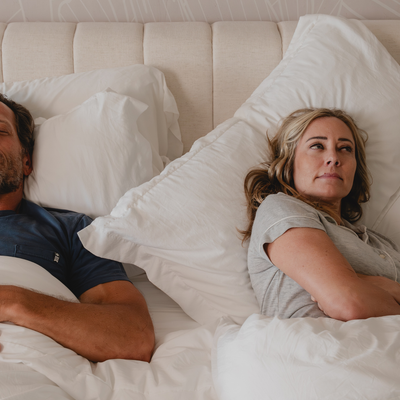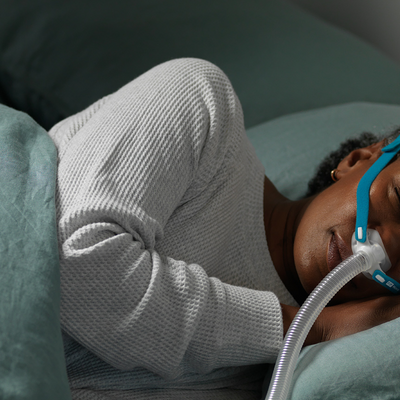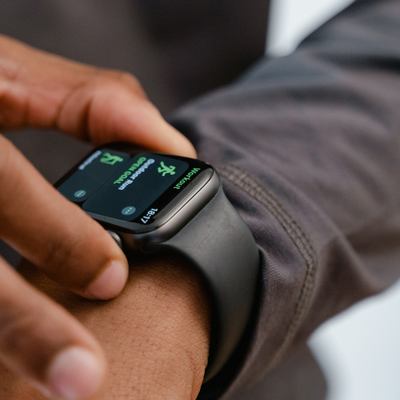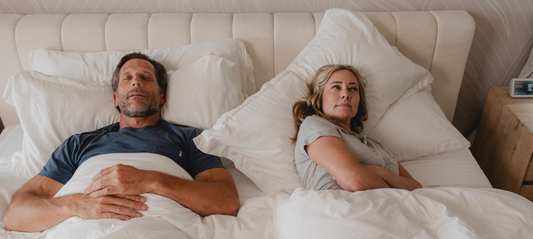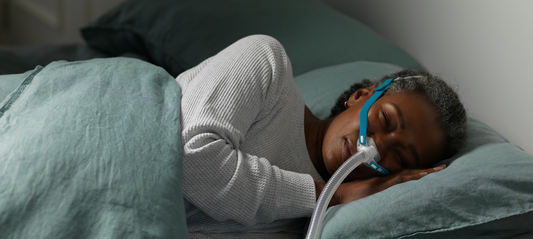Written by Kristen Cascio
May 9th, 2024
Socials: @meandmycpap on Instagram

Kristen Cascio is a clinical social worker and world traveler from Boston. She was diagnosed with obstructive sleep apnea at age 31. Kristen now hopes to raise awareness while encouraging others to never feel self-conscious about their diagnosis.
There is a Myth
With Mother’s Day just around the corner, it is a great time to focus on sleep health for women. Optimal and restful sleep is critical for juggling the daily responsibilities that come with being a woman. But there is a myth about sleep that still perpetuates our society, leading to significant delays in diagnosis, treatment, and symptom relief: “women can’t have sleep apnea.”
As a woman in my mid-thirties my path to a diagnosis of obstructive sleep apnea spanned 15 years. During that time, I struggled with symptoms that I did not know were indicative of sleep apnea: daytime sleepiness, brain fog, morning headaches, and fatigue. Although my treatment providers knew about sleep disorders in theory, this was never explored as the root cause for my complaints.
"Change Your Lifestyle"
Instead, I was tested for a multitude of hormonal and vitamin deficiencies and ultimately told my “lifestyle” must be the cause for my symptoms. The lifestyle explanation remained prominent no matter how busy- or not busy- I was at each point in my life. Needless to say, that explanation never made sense to me. Once I was told by a specialist “some people just don’t have a lot of energy.” I later learned that most medical school programs only focus on sleep disorders for a few minutes. So, I do not share these experiences to criticize my providers but to educate and empower you to advocate for yourselves when you know something is being missed in your health journey. This is so crucial, especially for women.
I never would have guessed I had a sleep disorder, let alone one that disrupted my sleep hundreds of times per night. I used to think that I slept great every night! In all the years that I struggled I pushed through my daily responsibilities because I had no other choice. This included college, graduate school, and earning advanced licensure in my field. Now that I am being treated appropriately for my sleep apnea, I look back on those years and wonder how I did it. It is important to acknowledge that women with undiagnosed medical concerns, who can so often be dismissed, still accomplish so much despite their symptoms. It is my hope that raising awareness of sleep apnea and sleep disorders in general, particularly in young women, will lead to fewer missed diagnoses and earlier detection.
Common Symptoms
The truth is that anyone can be impacted by sleep apnea, and some estimates predict that 1 in 4 adults are affected. Understanding the symptoms can ensure we are all more effective advocates in obtaining testing and treatment. Some of the symptoms of sleep apnea include: sleep that does not feel restorative, excessive sleepiness during the day, waking multiple times in the night to use the bathroom, snoring or gasping in your sleep (often reported by a bed partner), morning headaches or a dry throat, difficulty concentrating, and brain fog. Attributing someone’s sleep apnea to their weight is another misconception that leads to long delays in diagnosis. While it is true that some people find symptom relief with weight loss, for other people their sleep apnea is caused by the anatomy of their airways or signals in their brain (central sleep apnea). People can have sleep apnea even if they are not overweight.
Advocate For Ourselves
Knowing that a diagnosis of sleep apnea can be more difficult for a woman to obtain, it is important to be advocates for ourselves. From my own experience, I could have given up numerous times when doctors’ visits did not lead to a solution to my symptoms. However, I knew that something was not right and that I was the person who knew my body the best. Had I been armed with facts about sleep disorders, I am confident I would have gotten answers sooner. Still, persistence is key.
The Turning Point
The turning point in my journey to a diagnosis was a period of one month where I tracked everything about my day. I was attempting to show, and ultimately did show, that my lifestyle was not correlated with my excessive daytime sleepiness. In this log I tracked when I went to sleep and woke up, my energy levels during the day, any naps I took, whether I exercised, my mood (to rule out mental health causes for my energy dips) and my period. I also documented what my day consisted of, including if I worked from home or commuted and any additional responsibilities that could have impacted my energy. Through that advocacy I obtained a referral from my primary care physician to a sleep specialist who took one look at my log and stated, “yes, that is not normal sleepiness.” I was so relieved and validated. I completed an at-home sleep study and was started on CPAP therapy for obstructive sleep apnea.
Additional strategies for advocating for a referral to a sleep specialist or a sleep study include asking family and friends, specifically bed partners, for their impressions of your sleepiness and explaining to doctors the specific ways that your symptoms impact your daily functioning. While you want a doctor to administer and interpret validated scales for sleep disorders, looking at some before you ask for a referral can give you more accurate language for what doctors will look out for. There are various nonprofit organizations and online communities of people with sleep disorders who share their experiences while providing the facts. I wish I had known about these resources before I obtained my diagnosis because the advocates and experts in these communities are so kind and gracious with their information and time. Project Sleep is a fantastic place to start. If I can be of assistance in connecting you with the resources you need, feel free to reach out to me on Instagram @meandmycpap.
I wish you all happy and healthy sleep this Mother’s Day and every day.
To learn more about at-home sleep apnea studies, click here



